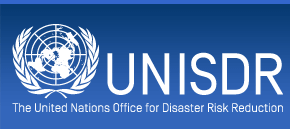
UNITED NATIONS (TIP): Lauding India‘s improved disaster risk management and accuracy of its meteorological department, the UN has said timely warnings on cyclones have helped “dramatically” reduce mortality during natural calamities.
The global assessment report on disaster risk reduction released by the United Nations said that the accuracy of forecasts made by the Indian Meteorological Department has greatly improved over the years.
It cited the 2013 cyclone Phailin that hit Odisha, saying “in a significant improvement” from previous years, warnings were disseminated four days before the cyclone made landfall.
“The cyclone made landfall in a pre-electoral period, meaning that both the national and state governments deployed all available resources to ensure that the disaster was well managed and its impacts minimised,” the report said.
Comparing the casualty figure of 9,843 in the 1999 super-cyclone that had hit Odisha, the report said no more than 47 people died during Phailin.
“This dramatic reduction in disaster mortality has been attributed to improvements in disaster risk management effected by the Odisha State Government,” it said.
The report further said that the case of Odisha is indicative of a trend in which improving development conditions and strengthened disaster management lead to dramatically reduced mortality, at least in those events for which warning is possible.
The report said that success stories from countries like Bangladesh, Chile, India, the Philippines in their disaster preparedness “show that timely and effective warning and communication coupled with risk information and a prepared population significantly reduces mortality.”
According to the report, an annual global investment of six billion dollars in disaster risk management strategies would generate total benefits in terms of risk reduction of 360 billion dollars.
“For many countries, that small additional investment could make a crucial difference in achieving the national and international goals of ending poverty, improving health and education and ensuring sustainable and equitable growth,” the report says.
While countries are devoting resources to disaster management, the report stresses that more needs to be done to foster a culture of prevention and incorporate disaster risk reduction into the post-2015 development agenda.
The report also noted that the cost of disasters worldwide has reached an average of USD 250 billion to USD 300 billion every year, urging countries to increase their commitments to strengthen their population’s resilience.
The report, produced by the UN Office for Disaster Risk Reduction, stresses that the economic losses caused by disasters are also hindering countries’ paths to achieve sustainable development, making risk reduction central to social, economic and environmental progress.
“If we do not address risk reduction, future losses from disaster will increase and this will impact countries’ capacity to invest money in other areas such as health and education. If we do not take the necessary measures now, it will be difficult to achieve development, let alone sustainable development,” said UN secretary general’s special representative on disaster risk reduction Margareta Wahlstrom.
“The report is a wake-up call for countries to increase their commitment to invest in smart solutions to strengthen resilience to disasters,” Wahlstrom said, adding that they will have an opportunity to do so at the third conference on disaster risk reduction taking place in less than two weeks in Sendai, Japan.
At the conference, countries will adopt a framework to success the hyogo framework for action.
Born in 2005 out of the world conference on disaster reduction, the framework is a 10-year plan, the first to detail the work that is required from all different sectors and actors to reduce disaster losses.
The report added that in many countries, climate change is magnifying risks and increasing the cost of disasters.





Be the first to comment